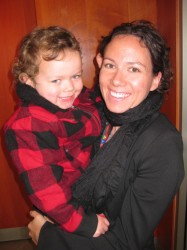Article Origin
Volume
Issue
Year
Wapawekka is a story about how culture changes throughout the generations—what is lost, but also what continues.
The film was screened at the 11th annual imagineNATIVE film festival in Toronto from Oct. 20-24.
“This is an important story to tell,” said film director Danis Goulet of La Ronge. “In the span of one generation there is a huge amount of cultural change.”
The 16-minute film is about a young hip-hop loving teen who travels to his remote northern Saskatchewan cottage at Wapawekka Lake one last time with his father.
There is very little dialogue between the father and son, revealing the gap between the two generations.
Dad speaks Cree and knows how to live off the land while the boy listens to beats, writes rap lyrics, and transforms native symbols into graffiti designs.
“It’s amazing how the younger generation is expressing itself,” said Goulet. “I wanted to reflect the change that’s happening in Aboriginal communities without judgement. My cousin expresses himself culturally, but in a contemporary way,” she added.
The idea for the film is based on Goulet’s own personal experiences so it made sense to call on family to be on screen.
The father character in the film is played by Goulet’s dad, Keith Goulet, a Cree speaker who still hunts and fishes in northern Saskatchewan while the teenager is played by her cousin, Josh Goulet.
Goulet admits that even within her own family there has been a major cultural shift and the younger generation’s way of life has changed drastically.
Goulet’s father grew up on the land and only spoke Cree. He was 13 when he saw his first toilet flush. Goulet, on the other hand, lives in Toronto, and uses filmmaking as a tool to express her culture.
Much of the film is in Cree with English subtitles, but Goulet wanted to include subtitles in Cree syllabics as well.
“It was really important for me not only to honour the English speaking audience but to also honour the audience from the older generation—even if it is more symbolic. It creates fluidity amongst the generations. There is loss in many ways, but there are also many connections,” she said.
The film beautifully depicts the landscape of northern Saskatchewan. It is shot at Goulet’s family cottage, a place where she still loves to go in the summer.
“It is close to where I was born and the cabin has been in the family for 30 years,” she says. “It’s really amazing and I wanted to bring a little slice of northern Saskatchewan to a wider audience.”
Wapawekka—Goulet’s third short film—first premiered at the Toronto International Film Festival.
“It means so much to me to be able to share this story,” Goulet said.
Wapawekka screened alongside 90 films from 12 different countries at the imagineNATIVE film and media arts festival. The mandate of the festival is to create a space where Indigenous stories can be at the forefront.
Photo Caption: Cree filmmaker Danis Goulet was at the imagineNative film festival in Toronto showing her film Wapawekka. Here she is pictured with her son Cassius Goulet
- 2409 views

